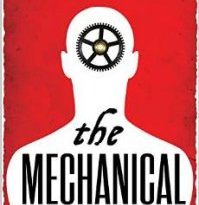Ian Mond Reviews The Factory by Hiroko Oyamada
 The Factory, Hiroko Oyamada (New Directions 978-0811228855, $13.95, 116pp, tp) October 2019.
The Factory, Hiroko Oyamada (New Directions 978-0811228855, $13.95, 116pp, tp) October 2019.
The Factory is Hiroko Oyamada’s fiction debut both in English, where it’s been translated by David Boyd, and in Japanese, where it was originally published in 2013. The short novel (really a novella) follows three people recently employed at an industrial factory located somewhere in Japan. Yoshiko Ushiyama, who works in Print Services, where she spends her days shredding an infinite quantity of documents, remembers coming to the factory when she was in elementary school. “At that time, it felt like the factory was enormous, maybe as big as Disneyland.” Yoshio Furufue, a scientist with expertise in classifying moss, and who has been chosen to “green-roof” the factory’s buildings, is told that the complex is “much bigger than your average town… [it’s] got mountains and forests, a giant river and the ocean.” Yoshiko’s brother, let go from his high-paying tech job and now a temp in the factory’s Document Division, struggles to stay awake as he proofreads an endless succession of “corporate profiles, operating manuals, booklets for children, recipes, texts on everything from science to history.” As the days, weeks, and months slide by, all three struggle to make sense of their new, ever-expanding environment.
I know the term “Kafkaesque” gets thrown around with great abandon these days, but if Franz Kafka were alive to witness the apotheosis of capitalism, his response might have been to write something very similar, if not identical, to The Factory. Oyamada’s setting has a distinct Kafka-vibe, the factory situated in a liminal space that straddles the real and the fantastic. Beyond its sheer size, there’s an uncanny characteristic to the factory’s ecology, including an overabundance of moss, coypus that are far larger than they have any right to be, and a species of black cormorant that flock near the river, never seem to die, and whose numbers are increasingly growing. Oyamada even pauses the narrative to include a report from a schoolboy (proofread by Yoshiro’s brother) that provides meticulous detail on the factory’s fauna. It’s all remarkably disquieting and unnerving.
Like Kafka, Oyamada is also concerned about how institutions – in her case corporate monoliths such as Amazon or Wal-Mart – gradually strip the individual of their identity, their sense of purpose, through the tedium of pointless, repetitive jobs. Yoshiko, her brother, and Yoshio Furufue are aware that their work is essentially meaningless – whether it’s the impossible task of green-roofing every building in the factory, or proofreading a random assortment of documents, brochures, and pamphlets – but they are powerless to enact change, becoming inured to the factory’s repetitive, mundane way of life.
It’s not all about Kafka though. Oyamada has a voice of her own, a dry sense of humor, a feeling for the absurd, and a willingness to experiment. One of the most confounding and yet effective aspects of The Factory is how the narrative jumps around in time. At first I thought there was something wrong with my copy of the book, but I soon realised these temporal shifts without warning or section break were deliberate. Together with the factory’s near-infinite size and its out-of-joint habitat, the slippery nature of the prose creates a sensation of the otherworldly without resorting to the supernatural. By the end of the novel you’re as alienated and unmoored from reality as the characters.
The Factory may take its cues from Kafka, but it’s still very much its own thing: a wry, satirical, discombobulating look at how we’ve all become cogs in the great machine of capitalism. The great news is that New Directions, who published The Factory, will be releasing Hiroko Oyamada’s second novel, The Hole, in 2020.
Ian Mond loves to talk about books. For eight years he co-hosted a book podcast, The Writer and the Critic, with Kirstyn McDermott. Recently he has revived his blog, The Hysterical Hamster, and is again posting mostly vulgar reviews on an eclectic range of literary and genre novels. You can also follow Ian on Twitter (@Mondyboy) or contact him at mondyboy74@gmail.com.
This review and more like it in the December 2019 issue of Locus.
 While you are here, please take a moment to support Locus with a one-time or recurring donation. We rely on reader donations to keep the magazine and site going, and would like to keep the site paywall free, but WE NEED YOUR FINANCIAL SUPPORT to continue quality coverage of the science fiction and fantasy field.
While you are here, please take a moment to support Locus with a one-time or recurring donation. We rely on reader donations to keep the magazine and site going, and would like to keep the site paywall free, but WE NEED YOUR FINANCIAL SUPPORT to continue quality coverage of the science fiction and fantasy field.








